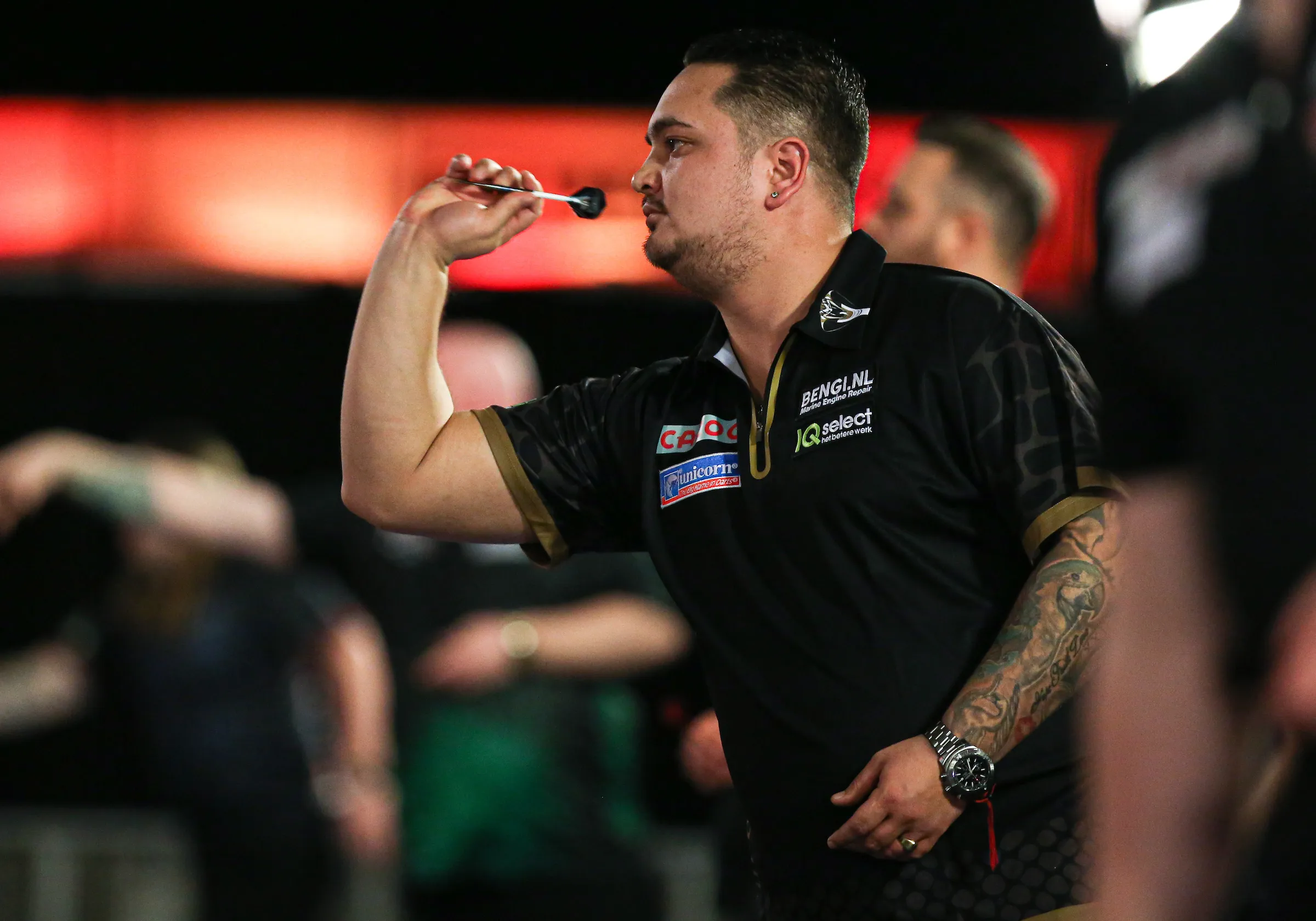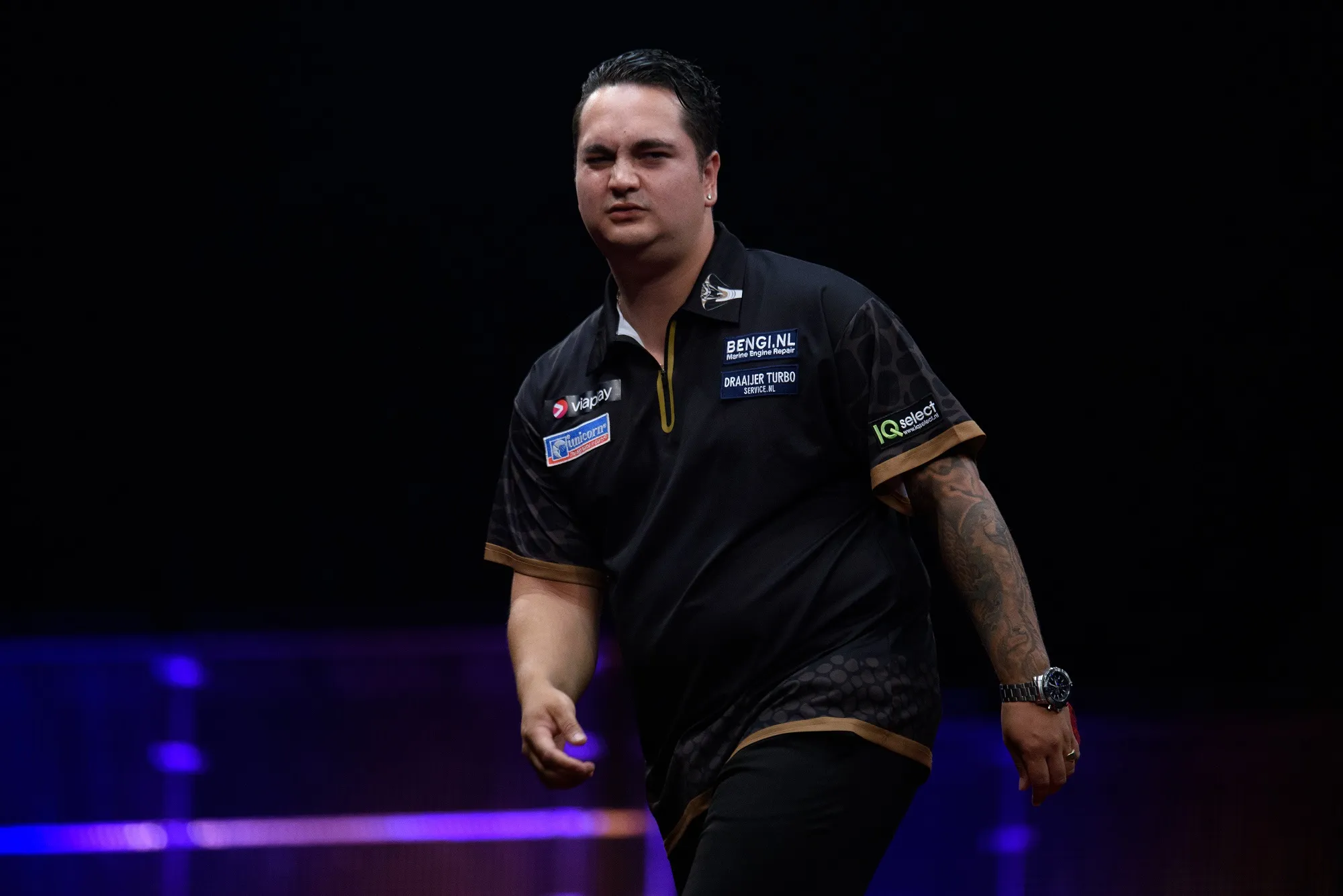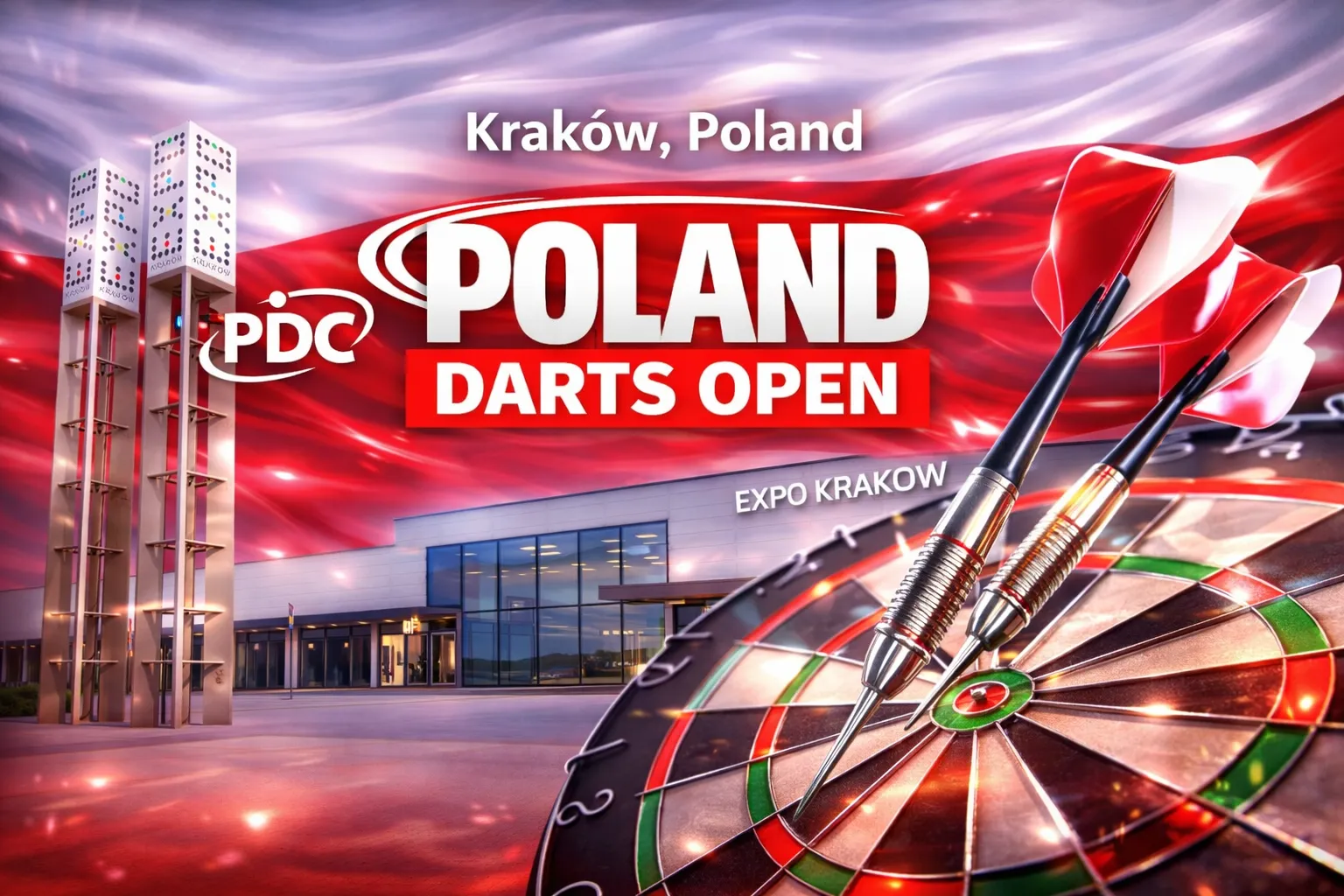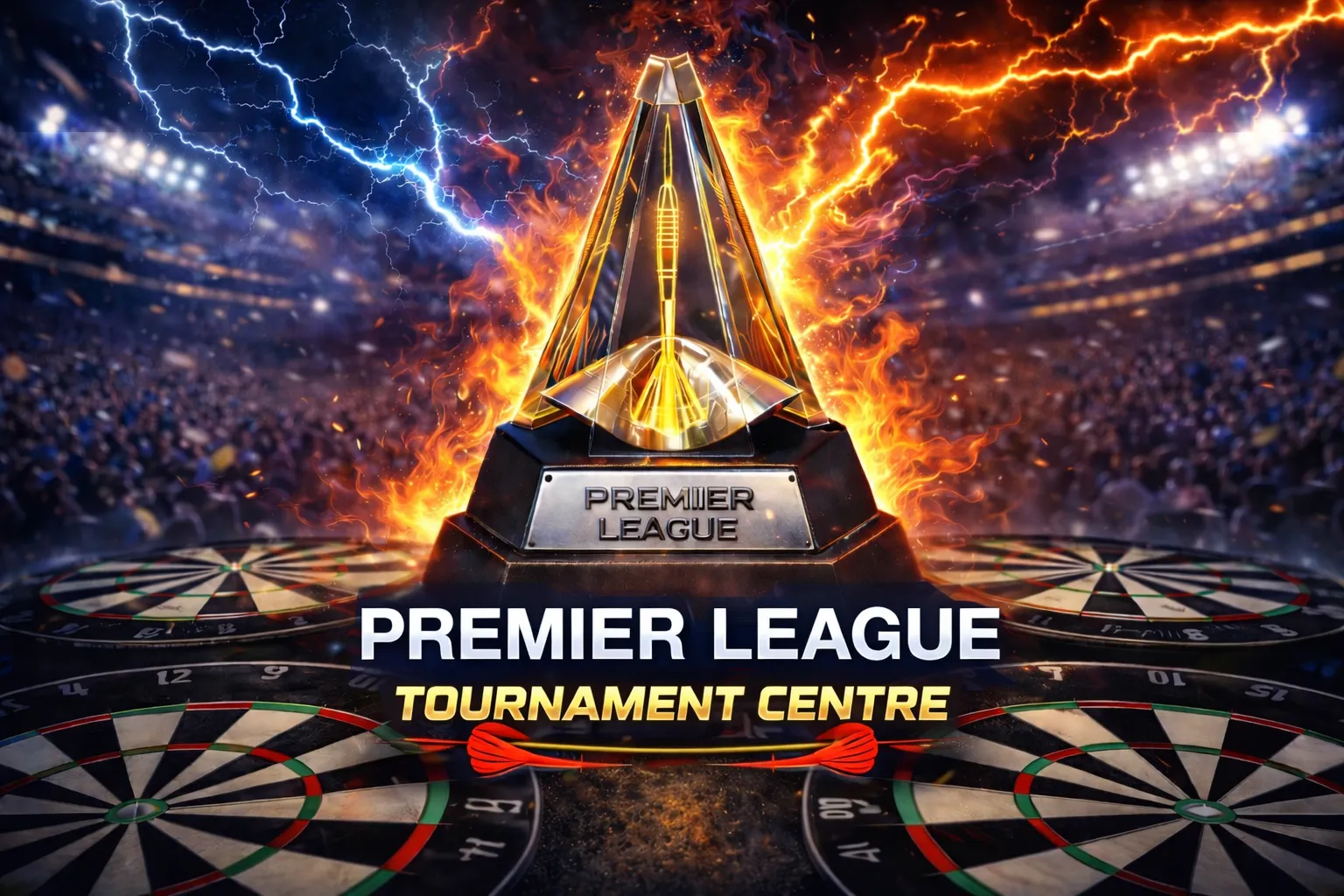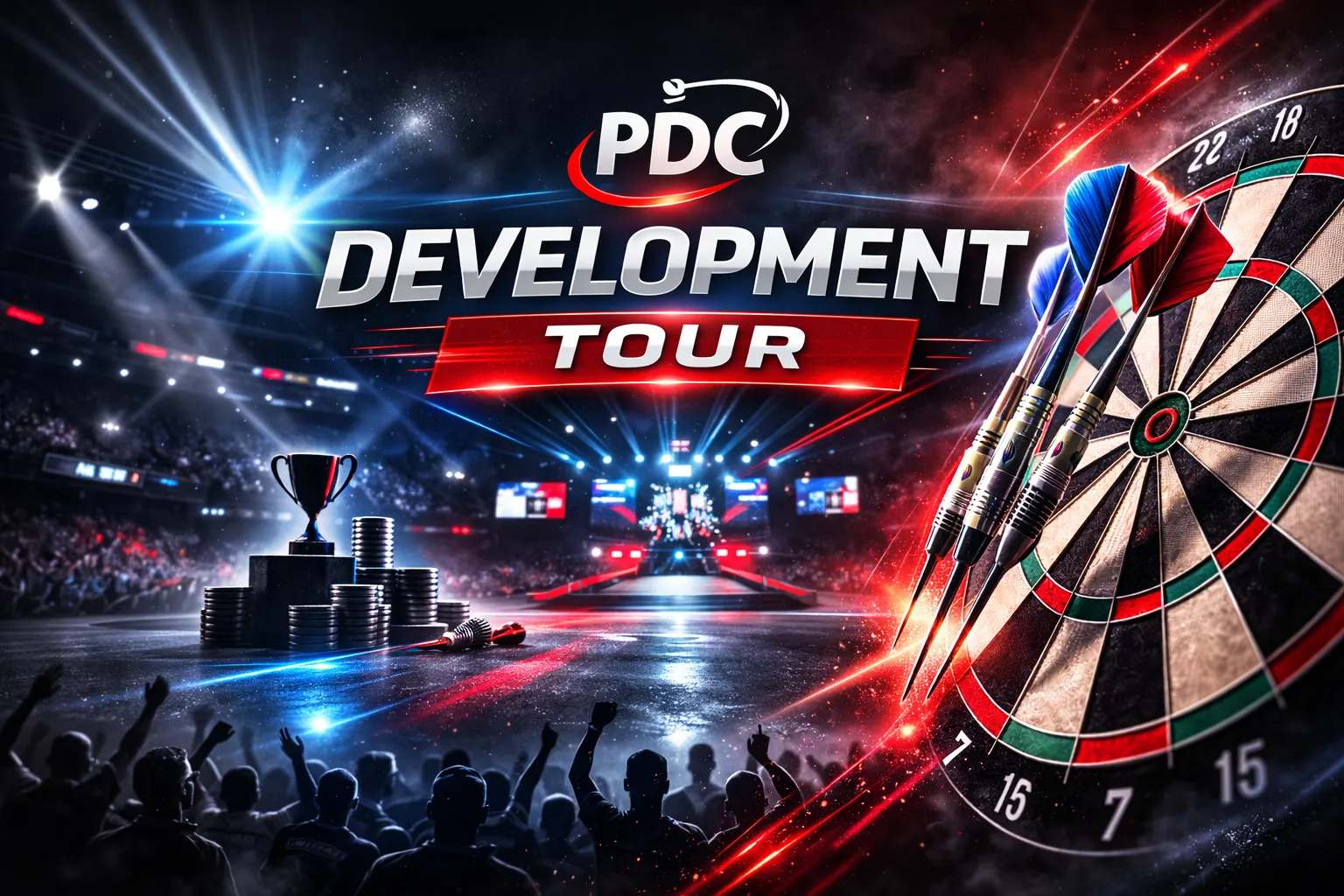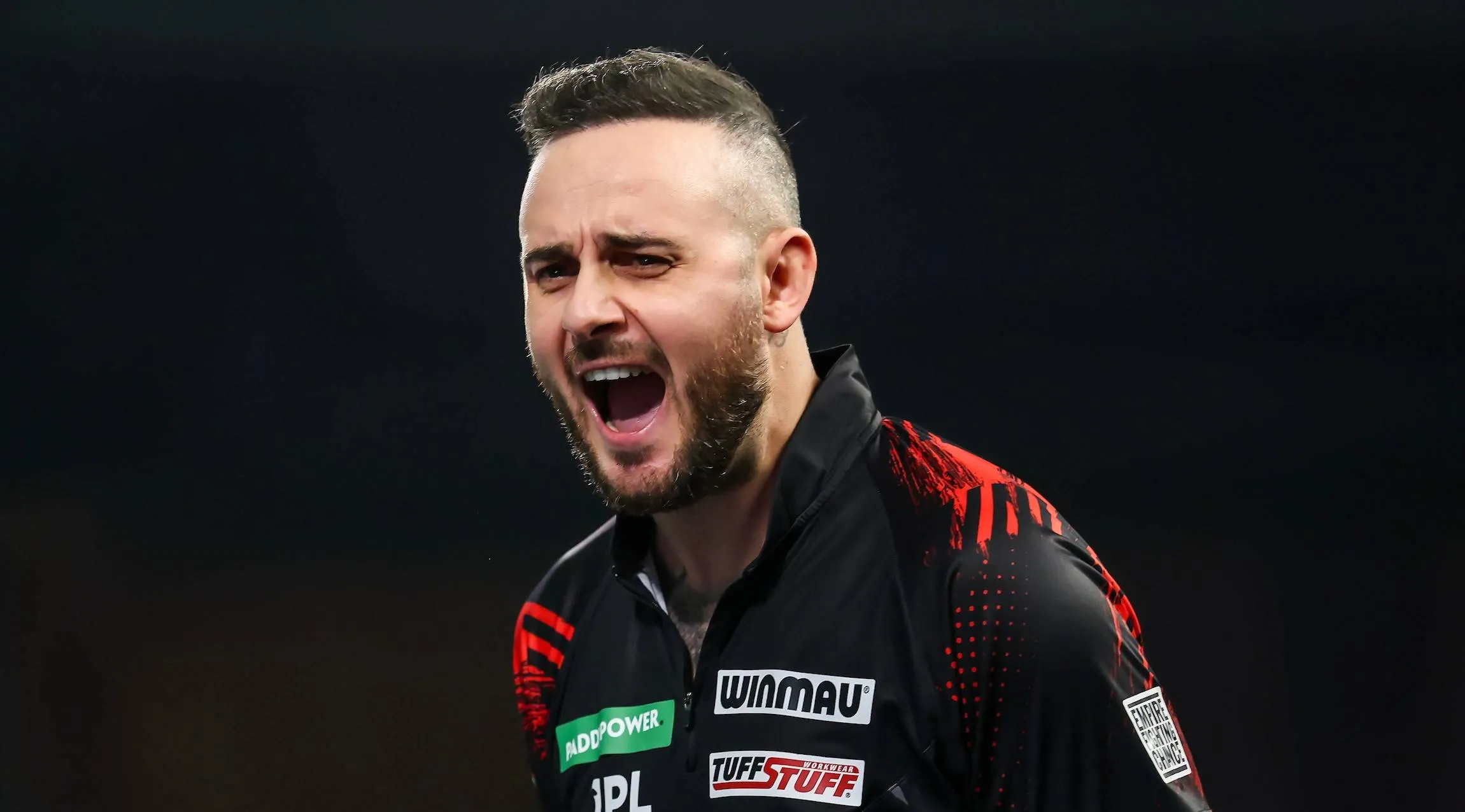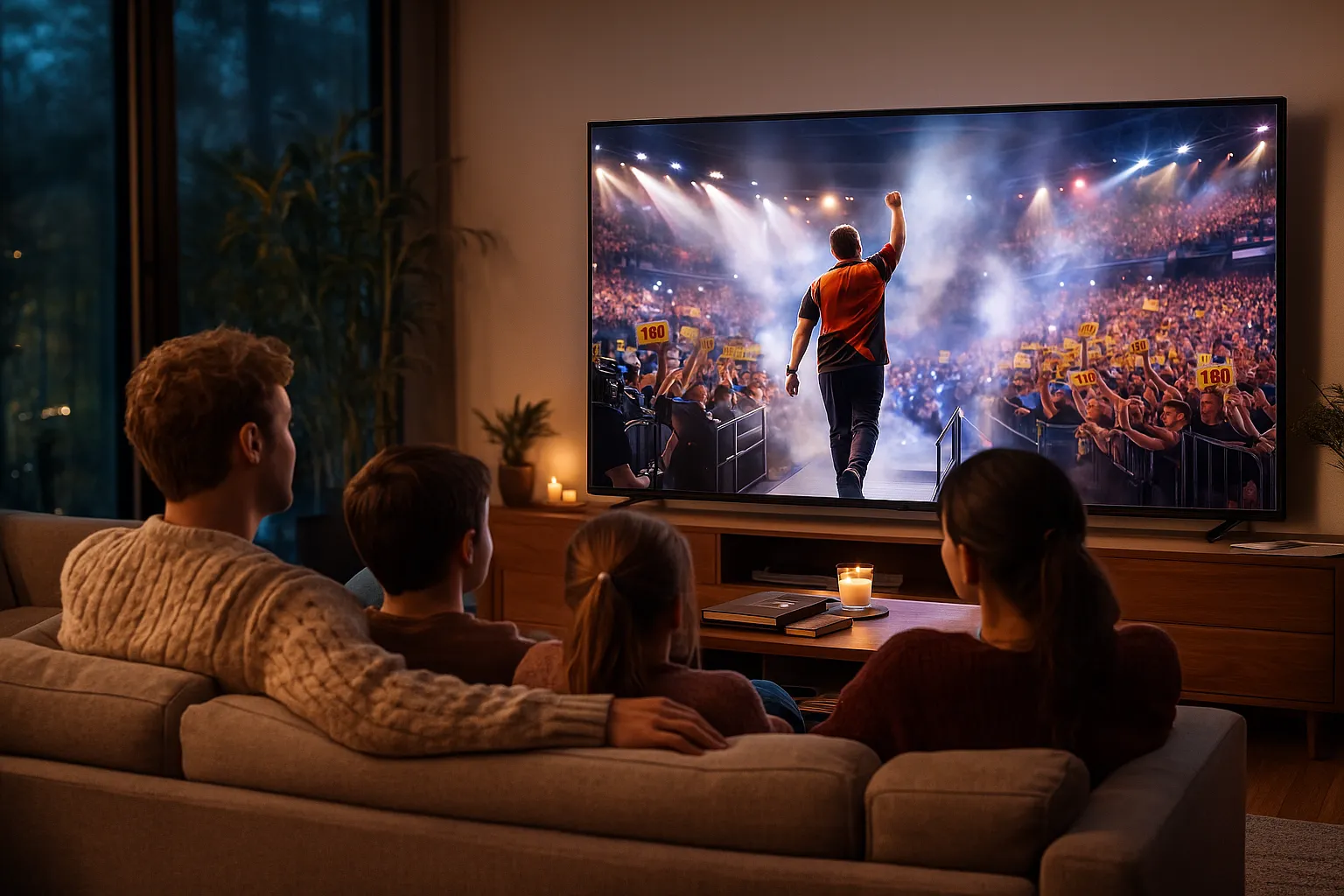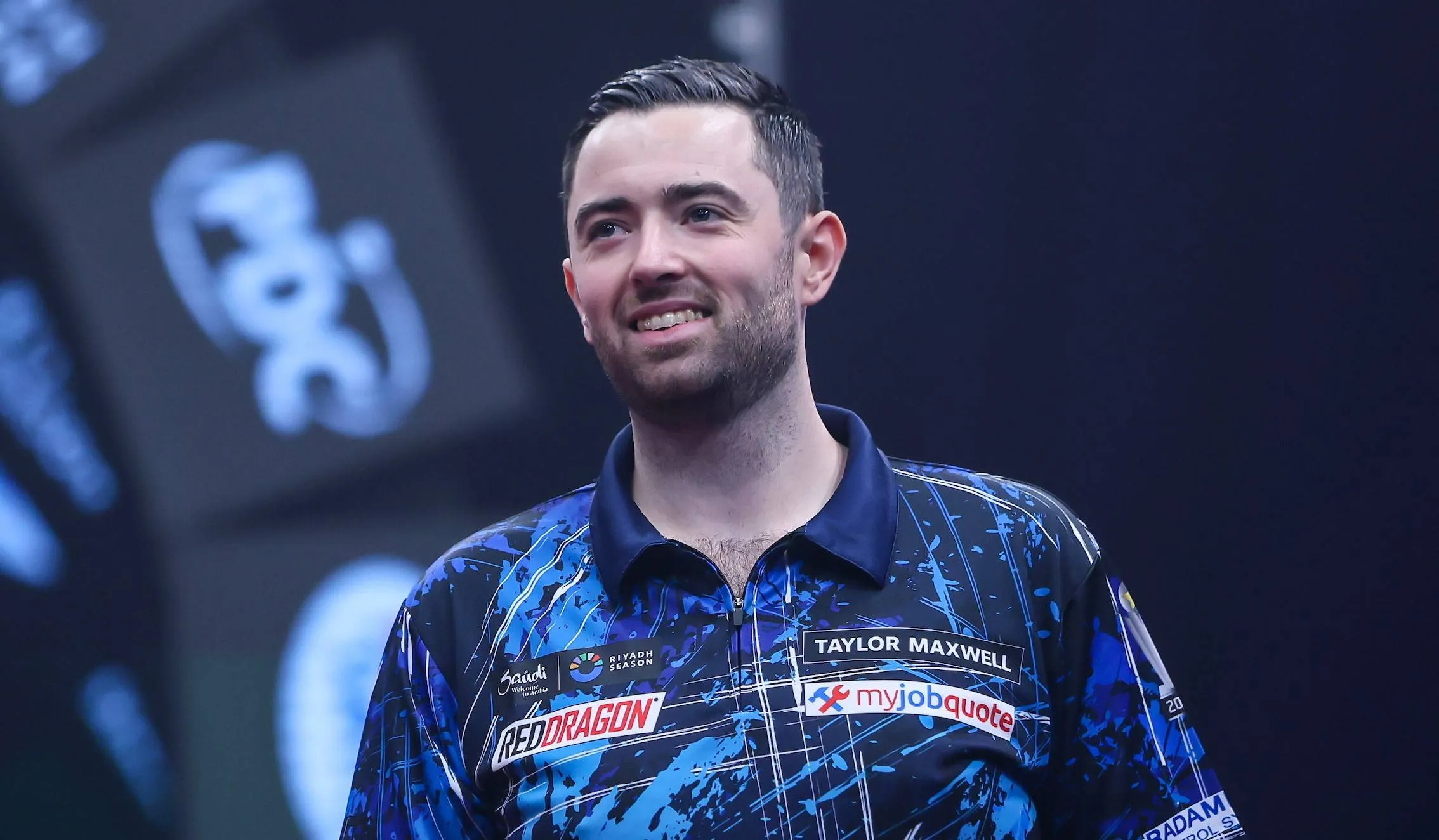(INTERVIEW) Thanks to dry needling, De Zwaan has found a new lease of life: ''Notice that my shoulder can handle everything I do again''
PDCFriday, 10 March 2023 at 12:00
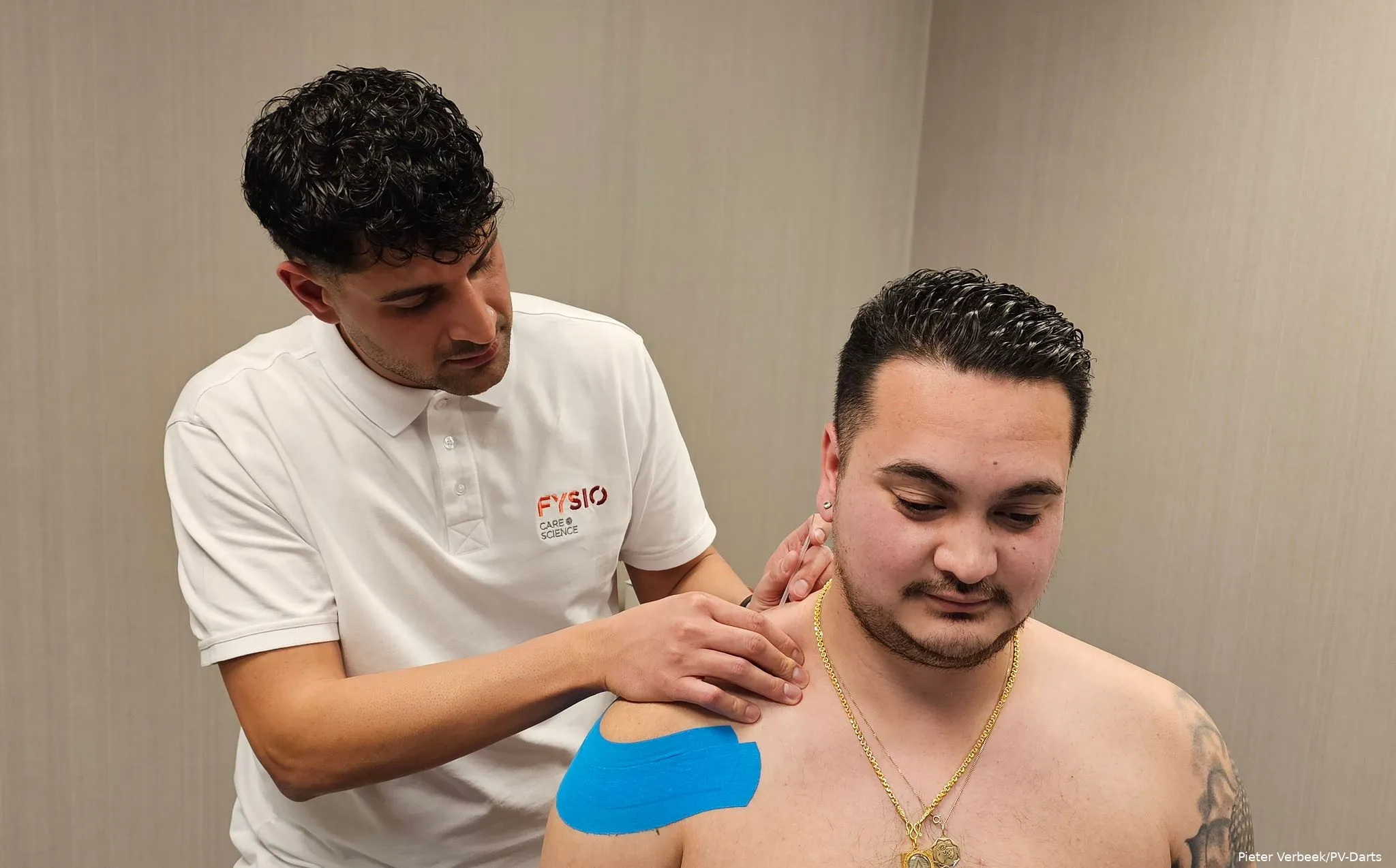
For the past few years, things have been pretty quiet around Jeffrey de Zwaan, who many connoisseurs thought had a great future after he made it to the semi-finals at the 2018 World Matchplay.
A persistent shoulder injury was behind De Zwaan's free fall in the world rankings. In the second half of 2022, 'The Black Cobra' was already showing signs of recovery, but it was too late to save his PDC Tour Card. He had to return to Q-School in January 2023 to reclaim his Tour Card, and succeeded in that mission by winning the third day of European Q-School in Kalkar.
At the UK Open in early March, the spotlight was once again on De Zwaan. He faced world number one Gerwyn Price on the main stage. In Minehead, De Zwaan sensationally defeated Price (10-8) with an average of 105. He eventually lost in the last sixteen against Rob Cross (10-7).
Read also
With his performance at the UK Open, De Zwaan proved once again that he has found his way up again. After years of struggling with his shoulder, De Zwaan has finally found the right treatment method at Shoulder Experts in Rijswijk under the guidance of Salar Azizian. At De Zwaan's invitation, DartsNews.com went along to one of the treatment appointments to see the process first-hand.
De Zwaan was referred to this practice in September 2022. In collaboration with an Italian company, a shoulder analysis was made of the Dutch darter's shoulder blade in Rijswijk. This analysis showed in great detail what the defects were and then a treatment plan was drawn up.
One of the first tests showed that De Zwaan's shoulder blade coordination was 52 per cent at the start of the programme. Through training with the shoulder pacemaker and other treatments, the shoulder blade coordination has risen to 96 per cent of what it can reach at maximum.
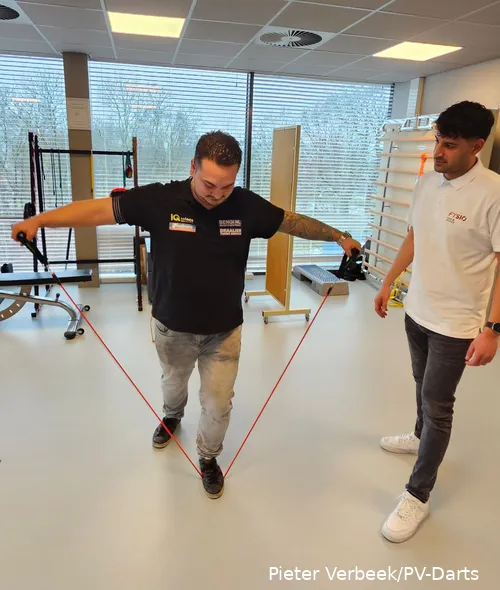
Jeffrey de Zwaan undergoes treatment using so-called 'shoulder pacemaker'
One of the other treatment methods is dry needling. De Zwaan's treating physiotherapist explains its usefulness. "The shoulder joint is a complicated joint, there are a number of muscles in this region that have to put in a lot of effort to facilitate movement (throwing the darts, ed.). Sport, of course, can be taxing. With Jeffrey, it's not about how much strength he has, but how long he can sustain being able to throw at that level in a coordinated way.''
''Dry needling is a technique used by physiotherapists, to treat pain and muscle tension. It involves the insertion of a thin needle into muscles, without the injection of medication or substance. The aim of dry needling is to release tight muscles or trigger points by inducing a local twitch response, which is a short-term contraction of muscle fibres in response to the needle. This twitch response can help reduce pain and improve range of motion. Dry needling is often used in combination with other treatment techniques, to treat conditions such as shoulder injuries. Eventually, you see that the muscle can function again in its optimal capacity.''
In the early stages of the shoulder injury, De Zwaan tried to compensate for the poor functionality of the shoulder with other regions connected to the shoulder. ''With throwing, you are in a static position and that requires coordination, stability and endurance,'' the physiotherapist continued. ''That coordination and stability has to be compensated with something and with Jeffrey that was done from the neck muscles and the upper back muscles. And that compensatory behaviour had to come out.''
Read also
The UK Open was therefore a good test for De Zwaan to see how his shoulder was doing. In barely two days, 'The Black Cobra' had to complete five matches, which can be seen as an intensive strain on the shoulder joints.
''Before (in terms of pain, ed.) I wouldn't have even made it to the second or third match. Now I can just easily handle that because I don't have that pain anymore,'' De Zwaan himself said of the result of the knock-on treatment. ''Since visiting Salar (the treating physiotherapist, ed.), I notice that my shoulder can handle everything I do again. I didn't have that before. Then I was throwing for an hour and had to stop, now I can even throw a whole weekend.''
The winner of two PDC ranking tournaments also notices that the functionality of his shoulder has pretty much recovered. ''Normally when I stand at the dartboard, when I release the dart you already feel where it's going to end up in the board. At one point that was just blind, I just didn't have that anymore. And then now I do again.''
That last comment needs more explanation from the specialist. ''You have to imagine that the moment you have pain and lack coordination in the shoulder joint, the body cannot control as well to get the arrow to a certain spot. This is due to the connections from the brain to the muscles not being coordinated enough. If you can improve that in combination with taking away the pain, then it has become a matter of 'I want there and he goes there'," said Salar Azizian, the physiotherapist.
Now that the current treatment has caught on, De Zwaan is again confident of making the most of his career. ''The feeling that I am on the right track is strengthened with the results of the past few months. I can see from that that I have made progression. I am convinced that I can maintain this upward trend.''
claps 2visitors 2
Just in
Popular news
Latest comments
- what a load of crocmedinabello19-02-2026
- So,it's a rubbish league,waste of time. Just put 8000 people in a building every Thursday,get them all drunk,and wonder why it's a complete joke. And forget every other player apart from 8. It's a ridiculous,inane,and needless so called competition.rick6718-02-2026
- Sorry,I've never been a professional darts player,but obviously from your comment,you have. So, going to your reply, you're blaming the management,not the player? So in that respect,he should get a different manager? That's basically all your comment is saying. Don't let him do money makers,which Barney said is easy money, instead of tournaments? Shake hands instead of trophies? Well I guess the manager knows best,as he has a big cut!rick6716-02-2026
- Sorry Mr rick67, erm what punditry credentials do you have to comment on a pundit? There's a reason why many top professionals have management teams. They know how to manage schedules etc so the players can just play. And how is Edgar wrong? Last year MVG failed to qualify by missing too many tournaments and underperforming. He's repeating the error this year so Edgar is right In calling this out.BandB15-02-2026
- Just get of Mardle,I didn't pay to watch him,and I don't want him for free! Let's see,how many world champions,either code,did you win? None! Now mason does it more as a player who was a floor player than you were putting pineapple on your shirt. Mardle,just go,you over inflated ego may follow. Tell you what,get on the seniors tour,and show everyone how good you weren'trick6715-02-2026
- Sorry Mr Edgar,erm what have you actually won to comment? Mvg has had his issues,but you have won a grand total of what? I make that nothing. So how can your comment be justified? Let him do what he likes,you do what you like, and we'll see what you win nextrick6715-02-2026
- Seems to be having a moan for no reason and using “Do-Gooder” as an insult makes no sense. It literally means someone who does good things!Wonker12-02-2026
- Mickey Vs mensur for the world champion? It's starting tomorrow,finishes in January!!rick6711-02-2026
- Oh well that's it then. Both these goofs will expect and demand premier league darts next year after this.richieburnettrocks10-02-2026
- Sincere apologies to Richie, I forgot yesterday, slightly belated but Happy Birthday to the great man. Certainly looking good for 59richieburnettrocks08-02-2026
Loading
